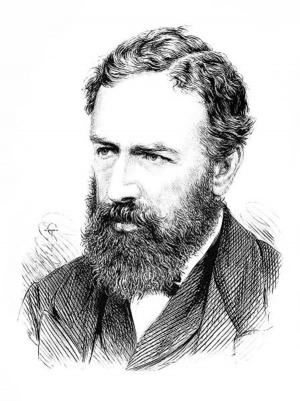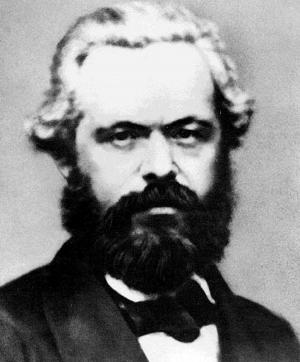Methods of Social Reform and Other Papers (Illustrated)
Business & Finance, Economics, Macroeconomics, Theory of Economics| Author: | William Jevons, Timeless Books | ISBN: | 1230000297205 |
| Publisher: | www.WealthOfNation.com | Publication: | February 6, 2015 |
| Imprint: | Language: | English |
| Author: | William Jevons, Timeless Books |
| ISBN: | 1230000297205 |
| Publisher: | www.WealthOfNation.com |
| Publication: | February 6, 2015 |
| Imprint: | |
| Language: | English |
The book has an active table of contents for easy access to each chapter as the follows:
1. AMUSEMENTS OF THE PEOPLE
2. The RATIONALE OF FREE PUBLIC LIBRARIES
3. THE USE AND ABUSE OF MUSEUMS
4. TRADES SOCIETIES THEIR OBJECTS AND POLICY
5. ON INDUSTRIAL PARTNERSHIPS
6. MARRIED WOMEN IN FACTORIES
7. INAUGURAL ADDRESS AS PRESIDENT OF THE MANCHESTER STATISTICAL SOCIETY on THE WORK OF THE SOCIETY IN CONNECTION WITH THE QUESTIONS OF THE DAY
8. OPENING ADDRESS as PRESIDENT OF SECTION F (ECONOMIC SCIENCE AND STATISTICS) of the BRITISH ASSOCIATION FOR THE ADVANCEMENT OF SCIENCE, At the Fortieth Meeting, at Liverpool, September, 1870
9. CRUELTY TO ANIMALS—A STUDY IN SOCIOLOGY
10. ON THE UNITED KINGDOM ALLIANCE AND ITS PROSPECTS OF SUCCESS
11. EXPERIMENTAL LEGISLATION AND THE DRINK TRAFFIC
12. ON THE ANALOGY BETWEEN THE POST OFFICE, TELEGRAPHS, AND OTHER SYSTEMS OF CONVEYANCE OF THE UNITED KINGDOM, AS REGARDS GOVERNMENT CONTROL
William Stanley Jevons was an English economist and logician in the row with the greatest thinkers Bertrand Russell, Gottlob Frege, Karl Popper, John Stuart Mill, Irving Fisher, Carl Menger, and Alfred Marshall. Their thoughts had strong influence on the investment style of George Soros and his endeavor of Open Society Foundations.
Irving Fisher praised Jevons’ book A General Mathematical Theory of Political Economy in 1862 as the start of the mathematical method in economics.
William Jevons' work of the utility theory along with similar discoveries made by Carl Menger in 1871 marked the opening of a new period in the history of economic thought.
William Jevons’ work The Coal Question in 1865 called out attention to the gradual exhaustion of the coal supplies in UK and he put forth what is now known as Jevon's paradox that increases in energy production efficiency leads to more not less consumption.
William Jevons’ most important contribution to logic and scientific methods is his Principles of Science in 1874 and The Theory of Political Economy in 1871.
William Jevon’s also invented the logic piano and a mechanical computer that was a pioneer work for modern computer.
William Jevons also proposed the unique approach and framework of "Commercial Crises and Sun-Spots" to analyze business cycles that crises in the economy might not be random events, but might be based on discernible prior causes.
William Jevons’ influence has been felt in nearly every field of the humanities and social sciences.
The reasoning by William Jevons still remains as relevant today as it was then. This book is one of the most important ones about the deepest thoughts of economics and social systems by William Jevons, one of the greatest thinkers of modern economics and logic on the planet.
The book has an active table of contents for easy access to each chapter as the follows:
1. AMUSEMENTS OF THE PEOPLE
2. The RATIONALE OF FREE PUBLIC LIBRARIES
3. THE USE AND ABUSE OF MUSEUMS
4. TRADES SOCIETIES THEIR OBJECTS AND POLICY
5. ON INDUSTRIAL PARTNERSHIPS
6. MARRIED WOMEN IN FACTORIES
7. INAUGURAL ADDRESS AS PRESIDENT OF THE MANCHESTER STATISTICAL SOCIETY on THE WORK OF THE SOCIETY IN CONNECTION WITH THE QUESTIONS OF THE DAY
8. OPENING ADDRESS as PRESIDENT OF SECTION F (ECONOMIC SCIENCE AND STATISTICS) of the BRITISH ASSOCIATION FOR THE ADVANCEMENT OF SCIENCE, At the Fortieth Meeting, at Liverpool, September, 1870
9. CRUELTY TO ANIMALS—A STUDY IN SOCIOLOGY
10. ON THE UNITED KINGDOM ALLIANCE AND ITS PROSPECTS OF SUCCESS
11. EXPERIMENTAL LEGISLATION AND THE DRINK TRAFFIC
12. ON THE ANALOGY BETWEEN THE POST OFFICE, TELEGRAPHS, AND OTHER SYSTEMS OF CONVEYANCE OF THE UNITED KINGDOM, AS REGARDS GOVERNMENT CONTROL
William Stanley Jevons was an English economist and logician in the row with the greatest thinkers Bertrand Russell, Gottlob Frege, Karl Popper, John Stuart Mill, Irving Fisher, Carl Menger, and Alfred Marshall. Their thoughts had strong influence on the investment style of George Soros and his endeavor of Open Society Foundations.
Irving Fisher praised Jevons’ book A General Mathematical Theory of Political Economy in 1862 as the start of the mathematical method in economics.
William Jevons' work of the utility theory along with similar discoveries made by Carl Menger in 1871 marked the opening of a new period in the history of economic thought.
William Jevons’ work The Coal Question in 1865 called out attention to the gradual exhaustion of the coal supplies in UK and he put forth what is now known as Jevon's paradox that increases in energy production efficiency leads to more not less consumption.
William Jevons’ most important contribution to logic and scientific methods is his Principles of Science in 1874 and The Theory of Political Economy in 1871.
William Jevon’s also invented the logic piano and a mechanical computer that was a pioneer work for modern computer.
William Jevons also proposed the unique approach and framework of "Commercial Crises and Sun-Spots" to analyze business cycles that crises in the economy might not be random events, but might be based on discernible prior causes.
William Jevons’ influence has been felt in nearly every field of the humanities and social sciences.
The reasoning by William Jevons still remains as relevant today as it was then. This book is one of the most important ones about the deepest thoughts of economics and social systems by William Jevons, one of the greatest thinkers of modern economics and logic on the planet.















